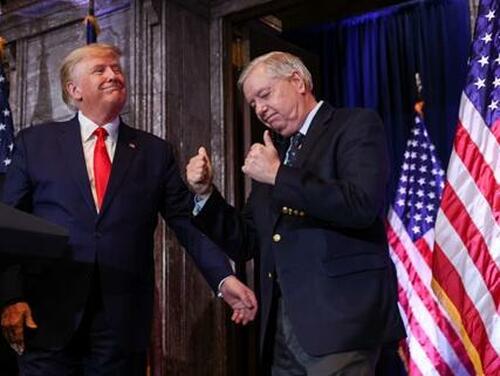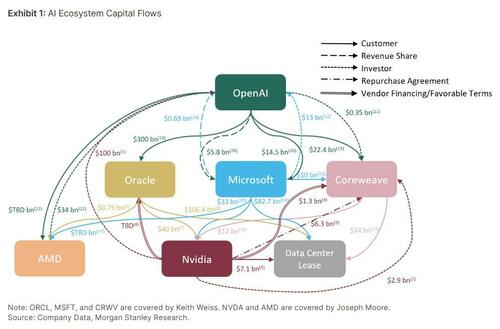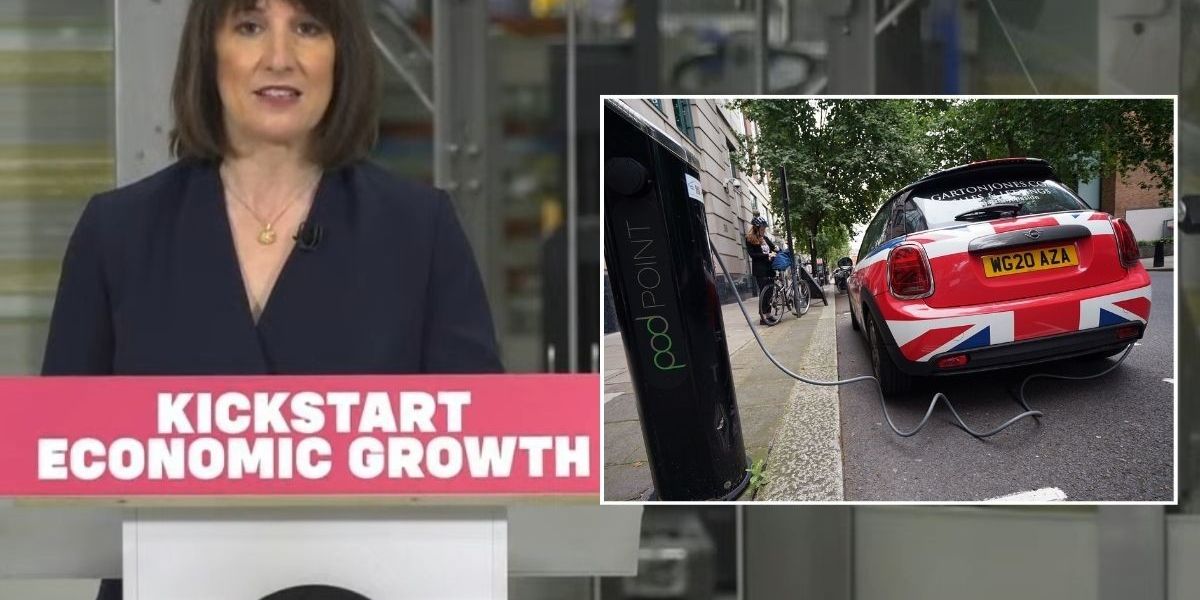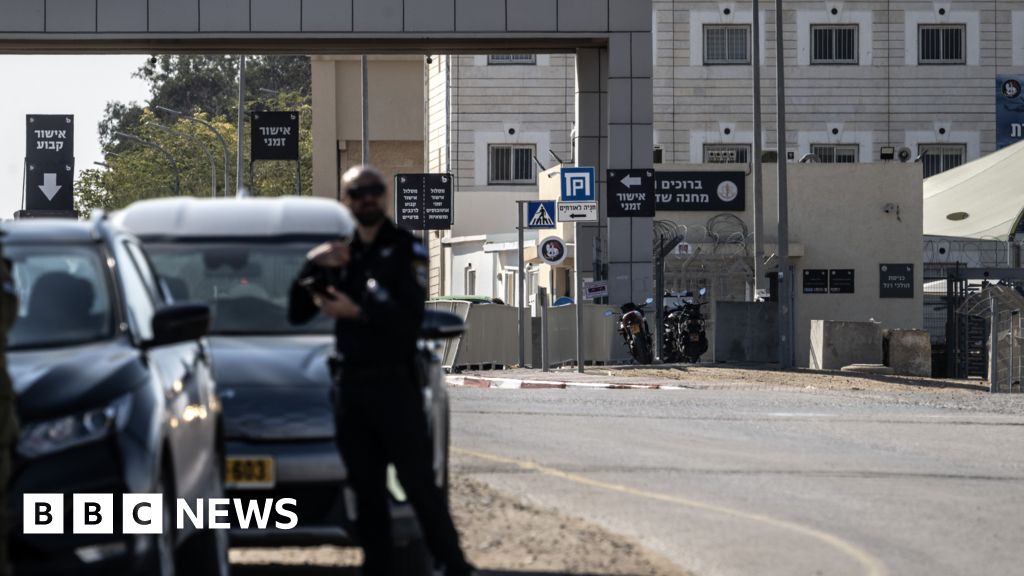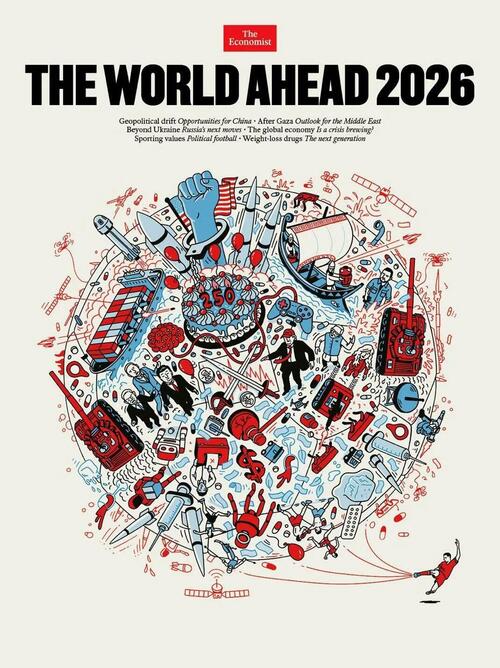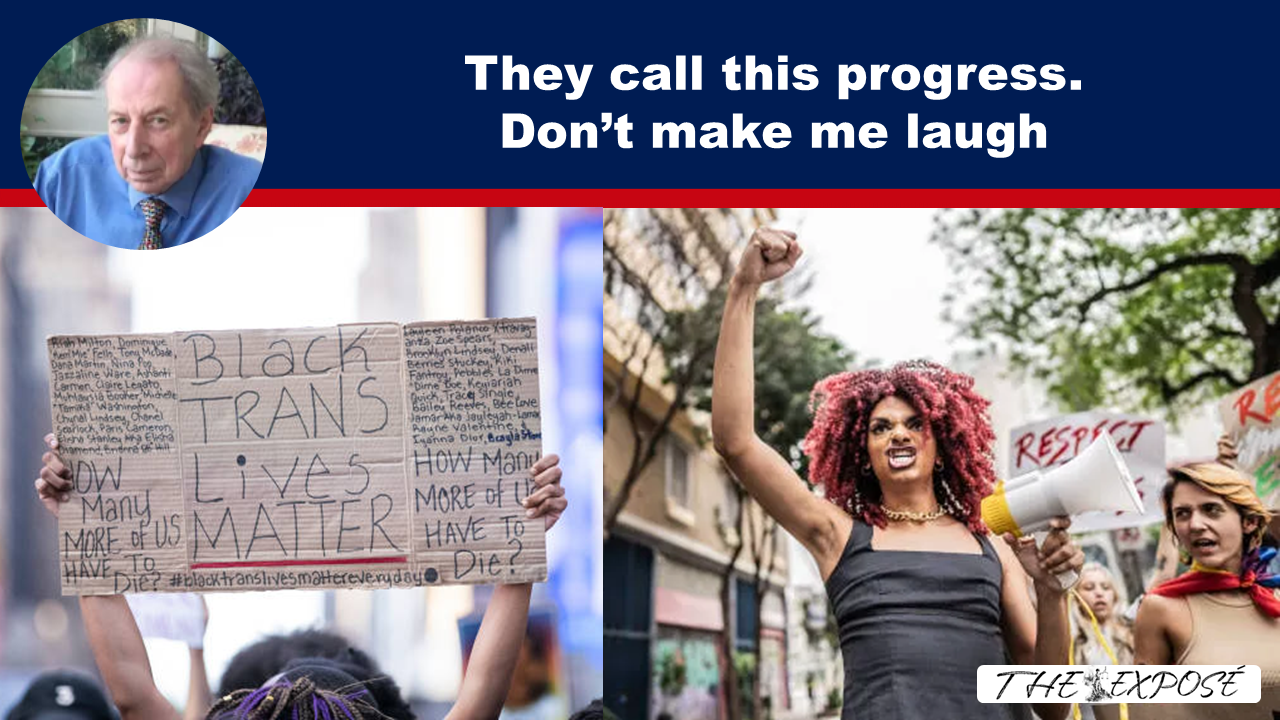Train Companies Are All Aboard the Trans Activism Bandwagon
Britain’s rail operators have plunged enthusiastically into transgender awareness campaigns with rainbow-painted locomotives, pronoun badges and a flurry of inclusion initiatives. From East Midlands Railway (EMR) to LNER, Avanti West Coast and Great Western Railway (GWR), no train operating company has wanted to be left behind in this ideological journey. EMR’s LGBTQIA+ staff network, for example, rolled out a Let’s Roll with Pride train paint scheme, complete with the Pride and trans flags, as a moving symbol of visibility and support. Alongside that rainbow train, EMR introduced optional pronoun badges for staff and even produced a video about the importance of getting pronouns right. Over on the West Coast Main Line, Avanti launched the nation’s first fully-wrapped Pride train (‘Progress’) crewed entirely by LGBTQ+ staff for its inaugural run. Not to be outdone, GWR has its own ‘Trainbow’ Intercity Express unit celebrating Pride, and nearly every major operator now sports some form of inclusion paint job or staff initiative. It’s a performative display spreading across the network but passengers and the vast majority of staff are starting to ask where this train is actually headed and whether it is passengers or politics in the driving seat. (I think you can guess!)

Performative Equality – Not a Legal Requirement
These well-publicised campaigns represent ideological overreach and virtue-signalling rather than genuine service improvements. Crucially, none of these colourful crusades are mandated by law. The Equality Act 2010 requires companies to avoid discrimination – it does not demand painting trains in rainbow stripes or compelling staff to declare pronouns. Train companies are pursuing these projects under the self-imposed banner of Equality, Diversity and Inclusion (EDI), not due to any statutory necessity. In fact, the law protects employees and passengers who hold more sceptical views about gender ideology: the landmark Maya Forstater case confirmed that gender-critical beliefs (such as believing biological sex is immutable) qualify as a protected philosophical belief under the Equality Act. This means someone cannot lawfully be penalised simply for questioning transgender ideology, provided she expresses her views respectfully. Yet rail bosses often behave as if only one viewpoint is acceptable on their trains – their own officially sanctioned rainbow-embroidered stance – while dissenting opinions are treated as beyond the pale. The result is a creeping corporate orthodoxy, all under the guise of inclusion, which by definition ought to include everyone – even those with unfashionable views.
The £58,000 Paint Job (and Other Costs You Cover)
Nothing illustrates the performative extravagance of these campaigns better than LNER’s now-infamous Pride Train. In 2023, the publicly-owned operator unveiled a fully rainbow-wrapped Azuma train called ‘Together’, festooned with eight different LGBTQ+ flags across its nine carriages. Managers hailed it as proof of LNER’s long-term commitment to diversity, equality and inclusion, a momentous symbol of how LNER truly focuses on creating an inclusive workplace. But behind the PR gloss, an awkward fact emerged: this eye-catching repaint cost £58,000 of company funds. The hefty price tag only became public after a curious passenger, Carol Fossick, filed a Freedom of Information (FoI) request to find out how much had been spent on the livery. LNER’s response was not to readily disclose details in the spirit of transparency, what with it being run by government, but rather to stonewall – branding the request vexatious and, incredibly, smearing the passenger as transphobic for even inquiring. A senior LNER manager trawled Fossick’s social media, decided she held views biased against transgender individuals and refused to answer her perfectly reasonable questions about the Pride train’s costs and design process. It was an extraordinary display of corporate defensiveness: apparently, asking how a taxpayer-funded operator spends tens of thousands on rainbow paint is now a thoughtcrime in the eyes of LNER.
The Information Commissioner eventually rapped LNER on the knuckles, ruling that disagreeing with the company’s gender ideology was not a valid excuse to ignore an FoI request. Campaigners like Maya Forstater condemned LNER for thought-policing passengers for blaspheming against the rainbow, likening the company’s culture to a quasi-religious orthodoxy intolerant of heresy. That £58k Pride train stands as a vivid example of how rail operators are spending time and money on virtue projects that have no relation to running a better railway – and woe betide anyone who asks whether it’s money well spent.
And it’s not just LNER. Across the network, untold staff hours and consultancy fees are being sunk into EDI initiatives. Every train operating company now has diversity managers, LGBT+ employee networks holding meetings on company time and often membership in costly benchmarking schemes (like Stonewall’s Workplace Equality Index). These initiatives may come wrapped in heart-warming rhetoric, but they all divert resources – whether it’s a train taken out of service for a repaint, staff designing pronoun badge schemes, or the hiring of diversity trainers to lecture on gender identity. All this happens while basic service issues – like trains running on time, cleaning carriages, selling affordable tickets – struggle for attention. The irony is that rail operators, heavily subsidised by taxpayers, seem more eager to satisfy activist agendas than their long-suffering passengers.
Post-Covid Contracts: Compliance Over Customers
One reason cited for this outbreak of rainbow railway fever is the structure of the post-Covid operating contracts. After the pandemic, the old franchising system (where private operators lived or died by fare revenue and service quality) was replaced with management-style concessions. The Government now pays train operating companies a management fee to run services, with strings attached in the form of centrally determined targets – including on diversity and inclusion. In other words, operators are rewarded for compliance with Whitehall’s social objectives rather than for commercial performance. Indeed, operators openly state that during their National Rail Contracts they will enhance practices to eliminate ‘bias’ and achieve EDI goals. When your contract (and paycheque) depends on ticking EDI boxes set by the Department for Transport, it’s no surprise every company is eagerly painting trains and waving the progress flag. The culture of compliance is palpable. Staff and managers, mindful of those targets, often dare not question whether these diversity displays are excessive – creating a stultifying culture of fear and obedience, as Forstater put it. In such an atmosphere, no one wants to be the employee who objects to the new pronoun policy or asks if the multi-coloured livery is necessary, lest they be seen as not on board with the programme.
Policing Beliefs and Stifling Dissent
The zeal with which rail companies have embraced what can only be described as culture war ideology has led directly to the suppression of dissenting voices – even when those voices belong to loyal staff and passengers. Alongside the LNER incident, a recent case at West Midlands Railway (WMR) underscores how gender-critical opinions are being treated as a sackable offence, in blatant disregard of the law’s protections. Matthew Toomer, a 48 year-old volunteer station adopter (and a gay man himself), was expelled from WMR’s community volunteer programme after he politely questioned the company’s Pride branding. WMR had rebranded one of its trains with a rainbow diamond motif resembling the Progress Pride flag, even naming the train ‘Hurst Street’ after a gay district in Birmingham. Toomer’s supposed crime? Commenting on social media to ask whether that train would return to its natural state once the event is over. For that mild query, he was hauled into a meeting and told his views do not align with WMR’s values and mission, then summarily banned from volunteering at his local station. The message to staff and volunteers could not be clearer: question our Pride campaigns, and you’re out.
Toomer’s case, now championed by the Free Speech Union, highlights the ideological orthodoxy taking hold. As Toomer himself said, public transport organisations have begun taking visible positions on divisive issues and aligning with particular ideological stances – especially on gender – that not everyone, including many in the LGB community, fully endorse. Public services, he argued, should remain neutral and welcoming to everyone. For this perfectly reasonable stance, he was treated as a heretic. The FSU noted the bitter irony that punishing him in the name of diversity, equality and inclusion actually tramples those very ideals. It rightly called on WMR to apologise and reinstate him, with an FSU case officer bluntly stating that WMR should focus on delivering a working service for their passengers, not compelling every volunteer to be a fellow traveller for corporate wokery. In other words, a train company has no business acting as the arbiter of permissible opinion, especially when it chills free expression among the very people who keep the railway running.
Rail Infrastructure Joins the Rainbow Parade
It’s not only the train operating companies. Across Britain’s transport sector, leadership seems determined to signal the ‘correct’ beliefs. Network Rail, which manages stations and infrastructure, came under fire for erecting a giant Pride Pillar at London Bridge station – a totem pole festooned with a dizzying array of flags from the LGBT+ alphabet soup (including even the polyamory flag). A Network Rail diversity manager responded to criticism by declaring on social media “No time for TERFs”, effectively telling gender-critical women they’re not welcome on the railway. (He later deleted his account amid the backlash, perhaps realising how intolerant that made his inclusive employer look.) Transport for London (TfL), meanwhile, has adorned Tube stations with rainbow roundel logos during Pride and famously ordered staff to drop the phrase ‘ladies and gentlemen’ in announcements in favour of gender-neutral greetings. Even train uniforms haven’t been spared – the Merseyrail network, for instance, introduced pronoun options on staff name badges, and others are likely to follow suit. It seems every corner of the transport realm is eager to broadcast its righteousness on gender and sexuality issues, regardless of whether it improves a single journey or fixes a single broken rail.
Stick to Trains, Not Culture Wars
Many long-time rail users and workers are increasingly weary of this politicisation of the rails. The core purpose of a railway is to deliver safe, efficient and reliable transportation – to get people from A to B on time – not to propagate a social agenda. Yet under post-Covid contracts and activist pressure, rail chiefs act more like culture commissars than service providers. The result? Expensive paint jobs and X spats about pronouns, while fares keep rising and trains still get cancelled. A Daily Sceptic reader might well ask: who exactly benefits from turning trains into rolling billboards for the latest ideological fashion? It’s certainly not the fare-paying passenger crammed on a delayed train, nor the employee fearful of saying the wrong thing.
There is no objection to treating all passengers and staff with respect. But respect doesn’t require performative displays of allegiance to one side of a contentious debate. True inclusion on the railway would mean focusing on good service for everyone, without trying to score virtue points. As Matthew Toomer observed, public transport should be neutral ground, welcoming all – whether they wave the rainbow flag enthusiastically or not at all. By dragging the culture wars onto the train, train operating companies risk undermining public trust and unity. It’s high time Britain’s rail companies hit the brakes on ideological grandstanding. Matters don’t look to change any time soon, with the Government-run Great British Railways (GBR) subsuming each train operating company into its corporate belly once their concession end date approaches. All train operating companies will be run by GBR by the end of October 2027.
The surest way to serve the public equally is to concentrate on running a competent, courteous railway – and leave the social engineering at the station. The railway isn’t a vehicle for changing our beliefs; it’s literally a vehicle for getting us where we need to go. Concentrating solely on that is surely the best way to proceed.
Practically Perfect is the pseudonym of an employee of a train operating company in England.
Recent Top Stories
Sorry, we couldn't find any posts. Please try a different search.



